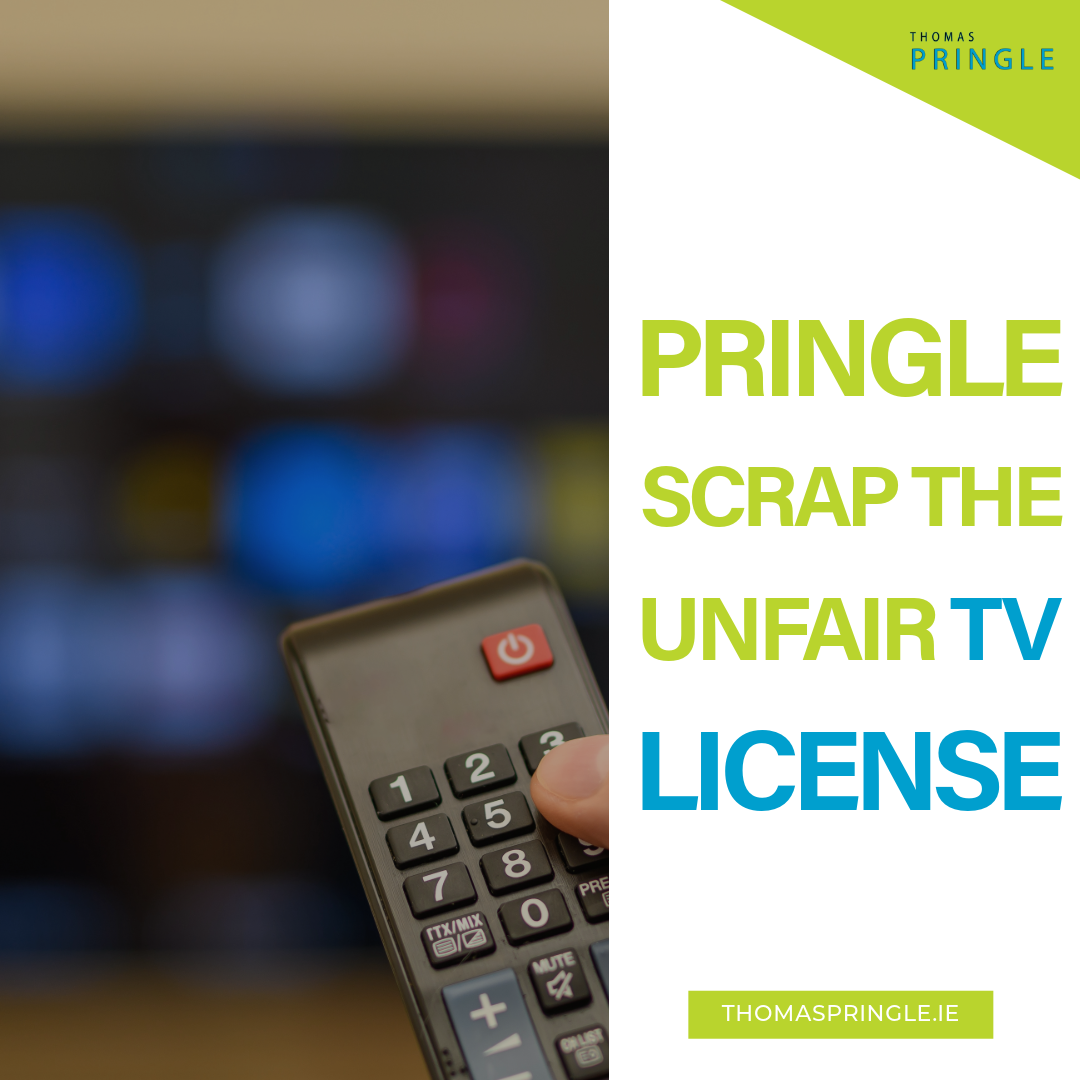- Pringle: We need a policy that recognises the importance of inshore fishing
- Pringle: Disabled people and carers face crisis of State neglect
- Pringle: Failed FF/FG housing policies forcing people to put their lives on hold
- Pringle welcomes Donegal council motion on Occupied Territories Bill: ‘We cannot stand by in the face of genocide’
Pringle: Scrap the unfair TV license
- Updated: 14th February 2024

Independent TD for Donegal, Thomas Pringle, said the television license should be scrapped and replaced by Exchequer funding, not “taken from the many families who live paycheck to paycheck”.
Addressing the Dáil on Tuesday evening, Deputy Pringle said: “While the TV licence fee may be an afterthought for some, for a lot of people in this country it is yet another bill on top of the many others that they are struggling to pay.”
He said: “The expectation for them to pay yet another bill in light of the scandalous waste of money by RTÉ in recent years is a massive slap in the face for people. I can’t understand why the government hasn’t taken the opportunity to scrap the licence fee following this and in response to the financial struggle that many households are experiencing. How is it that it is somehow affordable to give every household in the country more than €400 worth of electricity credits, while at the same time unaffordable to scrap a €160 television fee?”
The deputy was speaking in support of the Sinn Féin motion re Reform of the Television License Fee Model. He said: “I fully support this motion and its calls to scrap the unfair television license fee with immediate effect and to invest Exchequer funding into a platform-neutral Media Fund, which would support public service media content production and the activities of commercial, local and community providers, along with RTÉ and TG4.”
Deputy Pringle said: “Social Justice Ireland have recently revealed that Ireland’s rich-poor gap stands at €960 per week, or €50,115 per annum in 2024. They noted the impact of emergency energy crisis measures in 2022 to 2024 that saw this gap fall in 2022 for the first time over the last ten budgets.
“However, because these measures were temporary, the gap between those who are poor and those who are better off is due to widen again in 2024 and get increasingly bigger if more long-term measures are not implemented.” This is unfair for the most vulnerable in our society, he said.
The deputy said: “The opposition warned the government of the ineffectiveness of once-off payments in tackling poverty and in creating a more fair and just society. Once-off payments fail to benchmark social welfare rates to ensure they provide an adequate standard of living, and they can’t tackle the low-income culture that has prevented this country from eliminating poverty altogether.
“The most vulnerable get left behind when welfare increases don’t correlate with increases elsewhere in the economy and no amount of one-off payments will address this fact. The only way we can effectively address the income gap is by ensuring long-term social welfare increases and ensuring that fees, such as the TV licence, are paid through general taxation.
“This is a much fairer system where those who can pay more do so and those who can’t aren’t forced to,” he said.
The deputy also expressed support for the almost 200 staff who work at An Post in the collection of license fees, saying, “whatever happens with the television license, those jobs can’t be lost”.
Deputy Pringle said: “At the very least the TV licence fee should be waived until a new funding model is implemented.”
He said: “It is vital that citizens have a place to go for factual and unbiased information, a place where they are guaranteed the truth. It is vital that there is no further privatisation or outsourcing of national broadcasting services and production. Significant funding should be given to allow for this freedom and independence and it should be given through general taxation and increased taxation of big corporations.
“It should not be taken from the many families who live paycheck to paycheck and who will struggle to scrape together the extra to pay the licence fee in a country that is becoming increasingly more expensive and difficult to live in,” he said.



